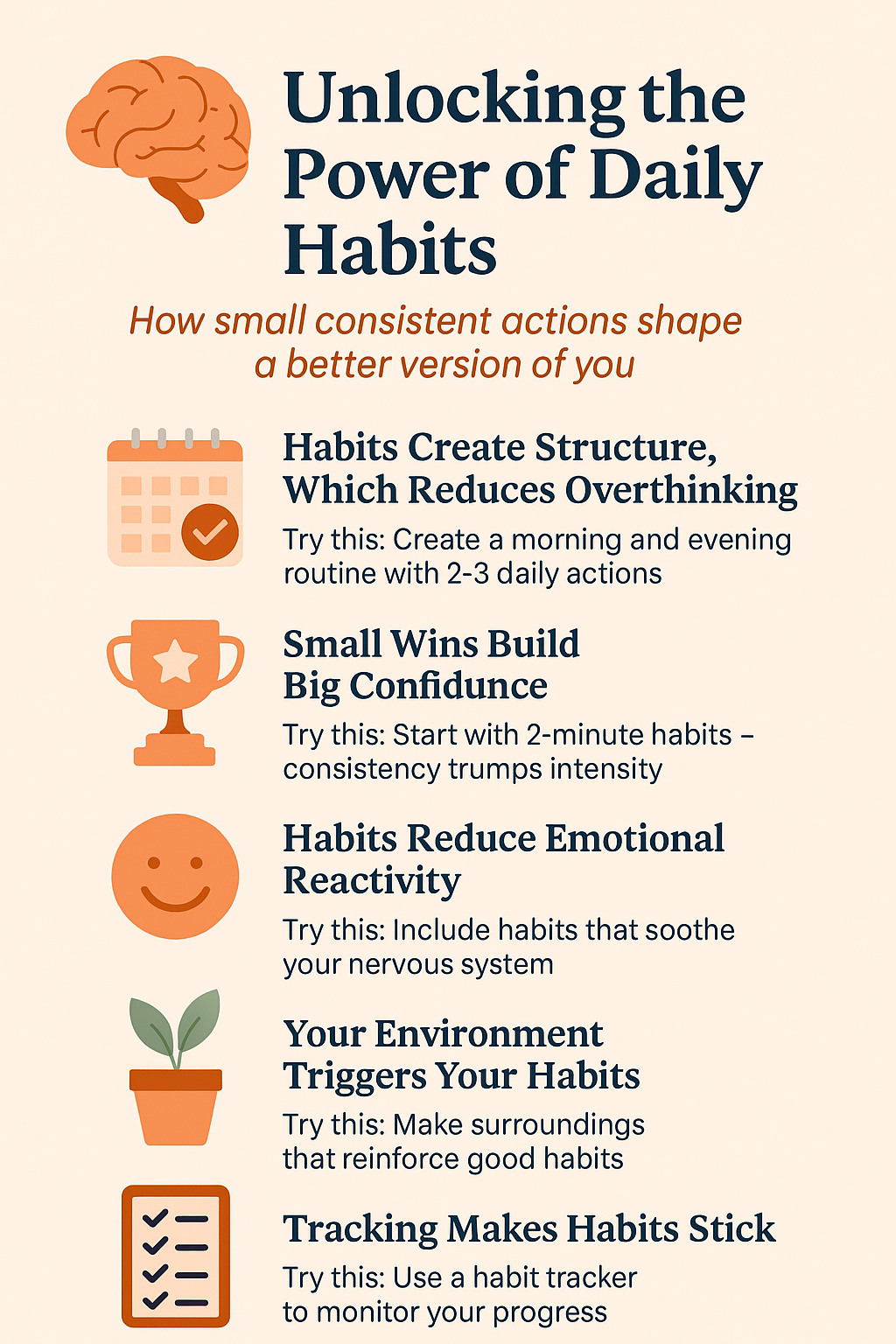How small consistent actions shape a better version of you
Big life changes often feel overwhelming—but what if the secret isn’t in giant leaps, but tiny steps repeated daily? Daily habits, when done intentionally, can rewire your mindset, boost productivity, and improve emotional well-being. It’s not about perfection—it’s about showing up again and again for yourself.
Let’s break down how daily habits work and why they’re one of the most powerful tools for self-growth.
1. Habits Create Structure, Which Reduces Overthinking
When your day follows a predictable rhythm, your brain doesn’t have to constantly decide what to do next. This frees up mental energy and keeps decision fatigue at bay.
Why it matters:
- Reduces anxiety and over-planning
- Makes room for creative and emotional clarity
- Builds consistency, even on “bad” days
Try this:
Create a morning and evening routine that includes 2–3 non-negotiable actions (like drinking water, making your bed, or reading 5 minutes).
2. Small Wins Build Big Confidence
Every time you complete a habit—even something small—you reinforce trust in yourself. These “micro-wins” stack up into a solid sense of self-worth.
Why it matters:
- Boosts motivation and momentum
- Shifts your identity: “I’m someone who finishes what I start.”
- Encourages more positive action naturally
Try this:
Start with 2-minute habits: 2-minute journaling, 2 push-ups, 2-minute meditation. Consistency is more powerful than intensity.
3. Habits Reduce Emotional Reactivity
When your nervous system is balanced through healthy routines, you’re less likely to spiral during stress or setbacks. Habits provide stability when life feels unstable.
Why it matters:
- Regulates mood over time
- Makes emotional healing more sustainable
- Keeps you grounded during tough days
Try this:
Include habits that soothe your nervous system: walking, stretching, deep breathing, or unplugging from screens daily.
4. Your Environment Triggers Your Habits
Where you spend your time—and what’s around you—either helps or hurts your habits. Your surroundings shape your behavior without you even realizing it.
Why it matters:
- Makes good habits easier to start
- Makes bad habits harder to continue
- Reinforces routine without relying on willpower
Try this:
Keep a water bottle on your desk, put books on your nightstand, place your phone out of reach before bed.
5. Tracking Makes Habits Stick
What gets measured, gets improved. When you track your habits visually (like in a journal or app), you stay more accountable—and feel rewarded seeing your progress.
Why it matters:
- Creates a feedback loop of success
- Builds self-discipline through visibility
- Helps you reflect on what’s working
Try this:
Use a simple habit tracker with checkboxes or color coding. Reward streaks with mini self-care moments.
Final Thoughts: Show Up for Yourself Daily
You don’t need to change your entire life in one day. Just build one small habit at a time, and let the ripple effects unfold. Daily habits shape your identity, and your identity shapes your future.
Start small. Stay consistent. Watch yourself transform.

